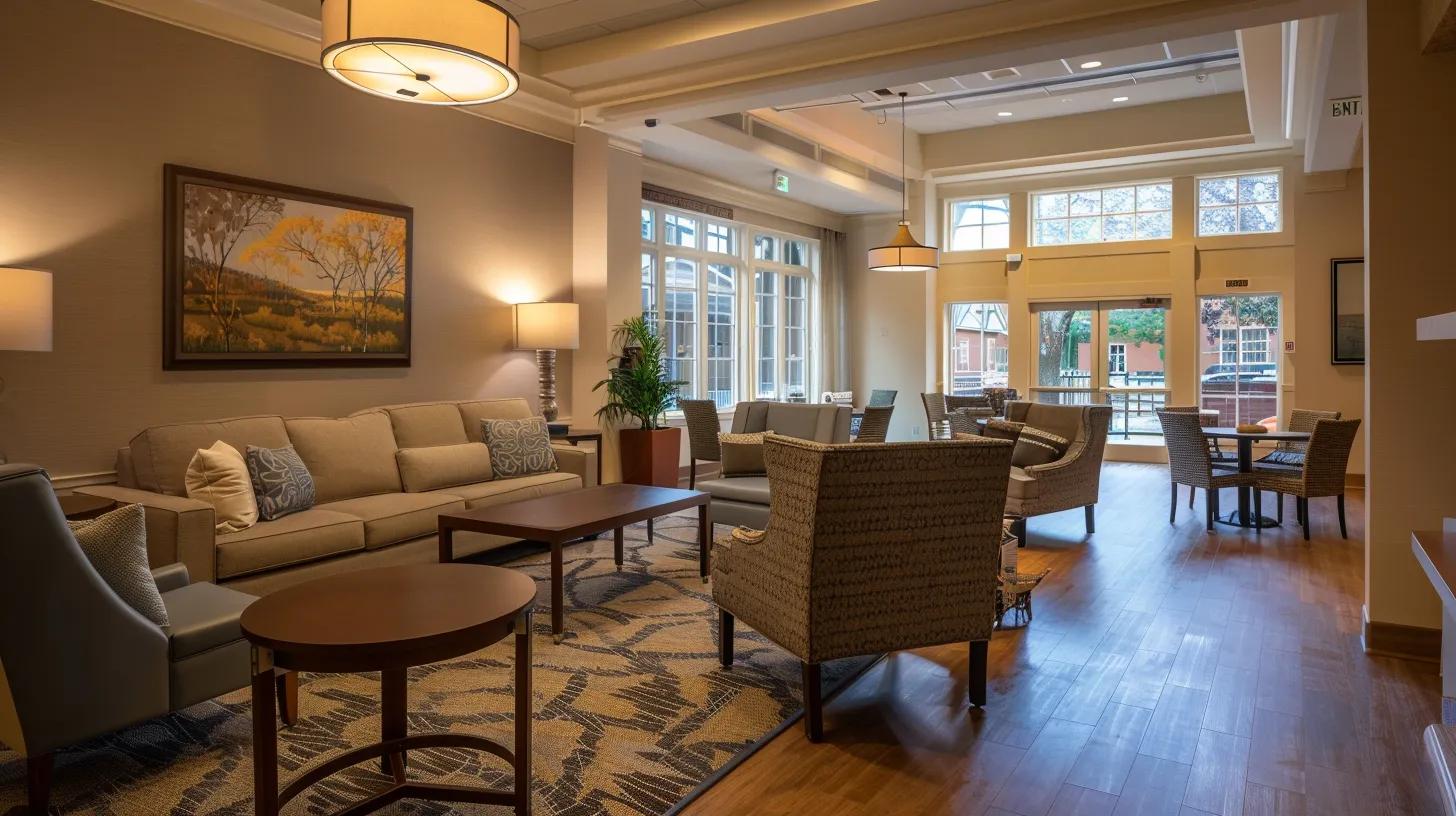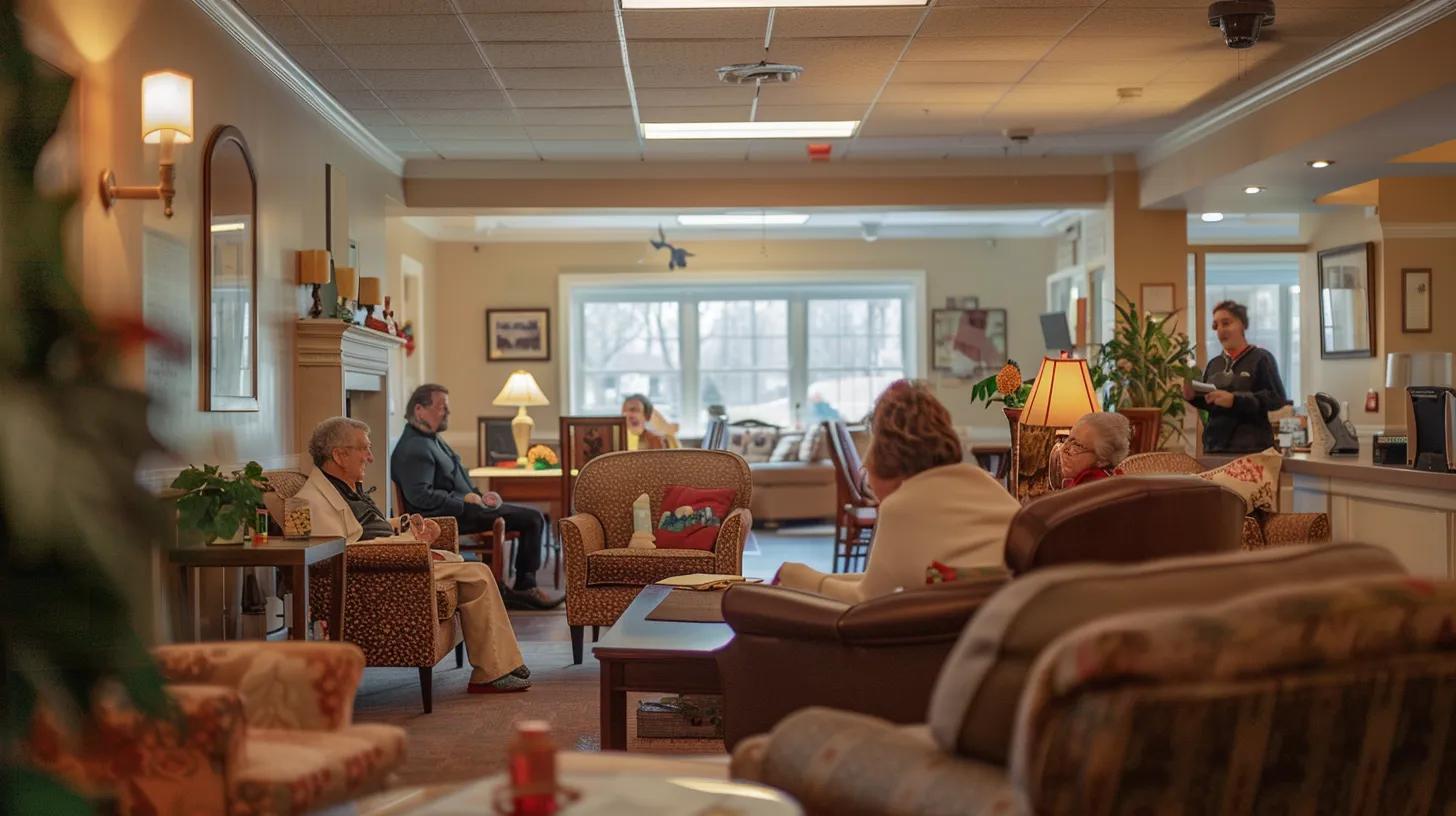Find a comprehensive guide to assisted living for dementia care, offering insights on services, support, and compassionate living environments for loved ones.
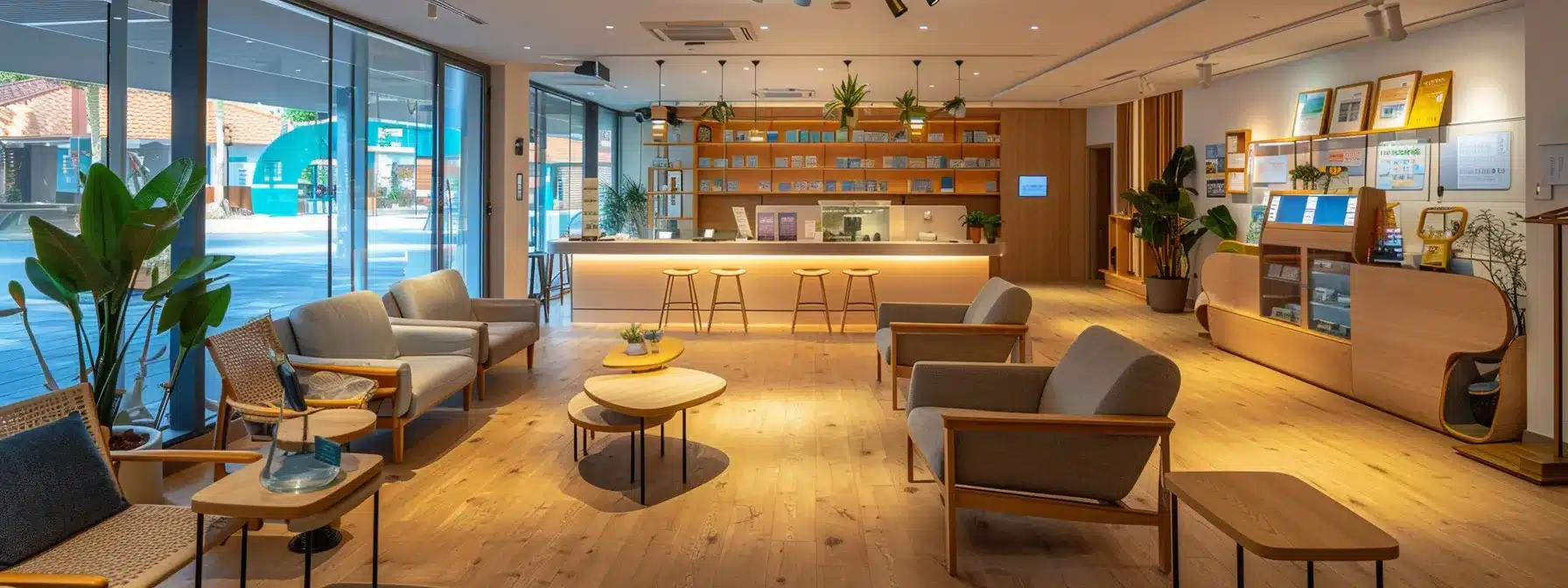
Navigate the Search for Dementia Care Facilities Nearby
Table Of Contents:
- Finding Dementia Care Facilities Near You: A Comprehensive Guide
- Key Takeaways
- Understanding the Importance of Dementia Care Facilities
- How to Locate Dementia Care Facilities Near You
- Assessing the Quality of Dementia Care Facilities
- Costs Associated With Dementia Care Facilities
- Services and Amenities Offered in Dementia Care Facilities
- Understanding Your Rights and Regulations
- Making the Transition to a Dementia Care Facility
- Frequently Asked Questions About Dementia Care Facilities
- Resources for Finding Dementia Care Facilities
- Testimonials From Families of Residents in Dementia Care Facilities
- Conclusion and Next Steps for Finding the Right Facility
- Frequently Asked Questions
- Conclusion
Finding Dementia Care Facilities Near You: A Comprehensive Guide
Are you struggling to find reliable dementia care facilities in your area? This guide clearly outlines how to locate and assess quality options while detailing costs, services, and the transition process. With practical steps and real insights, readers gain essential information to make informed decisions about finding the best option for their loved ones.
Key Takeaways
- memory lane assisted living focuses on a person-centered approach in a residential setting
- professionals provide clear guidance on specialized dementia care options
- thorough oversight and personalized plans ensure safe and quality care
- families are encouraged to communicate directly with care providers for practical insights
Understanding the Importance of Dementia Care Facilities

dementia care facilities play a key role in providing safe environments for those in need of support. A qualified health care provider ensures that residents receive individual attention and ongoing monitoring.
The services offered by these facilities extend beyond basic care, with many located near landmarks such as the Hudson River for a peaceful setting. This helps families choose facilities that align with their loved ones’ needs.
Secure plans involving health insurance allow families to manage expenses associated with specialized dementia care. These plans simplify payment processes and give families a clearer view of the potential costs.
Facilities in regions like West Virginia and New Mexico demonstrate varied approaches to dementia care within a small residential setting. Such examples highlight the diverse options available for accessing a person-centered approach to senior care.
Quality dementia care builds trust and safety. The next part shows simple ways to find local care that fits your needs.
How to Locate Dementia Care Facilities Near You
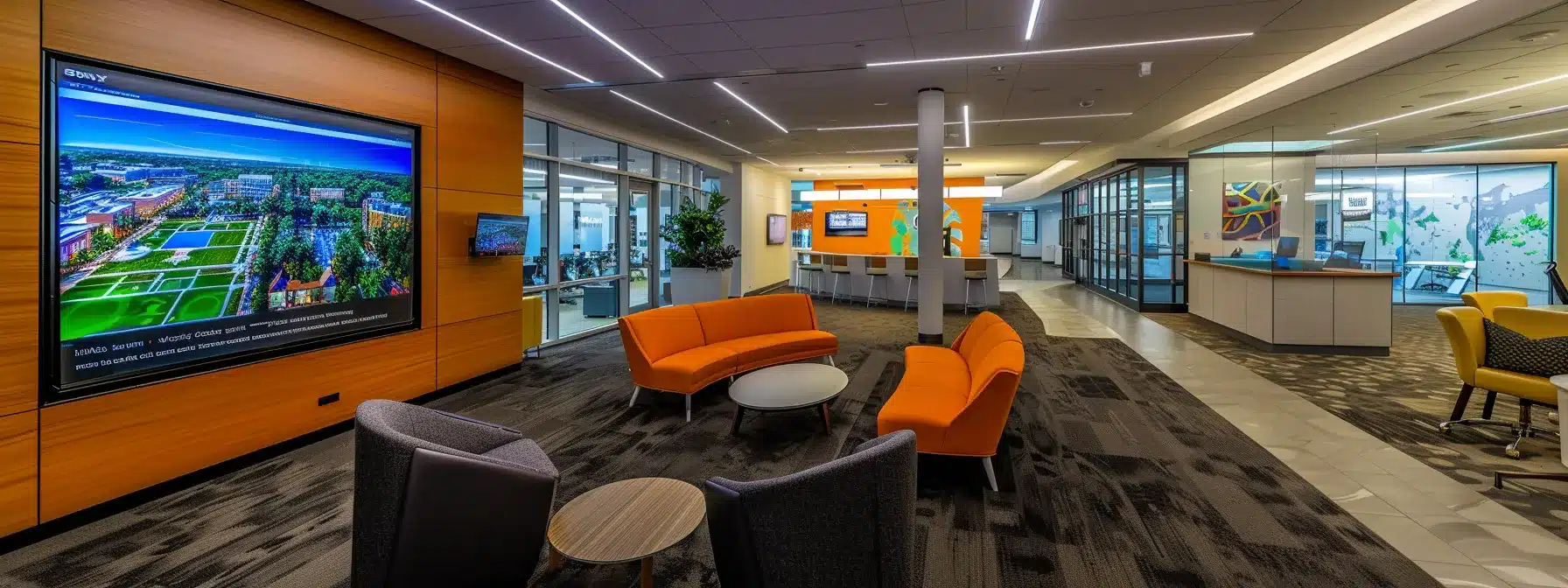
Memory Lane Assisted Living highlights practical ways to locate dementia care facilities. Professionals suggest using online resources and search tools for nursing home and assisted living options, consulting local healthcare providers for employment advice, asking family and friends for insights, and contacting Alzheimer’s and dementia associations. This approach also covers food delivery options and ombudsman services for reliable care settings.
Utilizing Online Resources and Search Tools
Online resources serve as a practical tool when searching for dementia care facilities. Users can find details about facilities in Wyoming, including information on income guidelines and activities of daily living by using search tools that offer filters by location and service, which help ensure that residents receive the support they need while maintaining energy and independence.
Search tools provide valuable data on facilities that arrange services such as meals on wheels to support residents. This approach gives families clear insights into options that prioritize both physical comfort and financial planning, making it easier to match individual needs with available care.
Engaging With Local Healthcare Providers
Local healthcare providers offer essential guidance for families seeking tailored dementia care options, ensuring that facilities in areas such as the upper west side and long island city meet regulatory compliance standards. Their expert knowledge assists families in identifying reputable options in regions like the bronx and york, simplifying the search process for care that fits individual needs.
Professional advisors work closely with community networks to connect families with suitable dementia care services:
- Consulting with providers in the upper west side
- Verifying facilities in long island city and the bronx
- Ensuring services comply with regulatory compliance measures in york
Their reliable recommendations empower families to make informed decisions based on local expertise and verified service quality.
Seeking Recommendations From Family and Friends
Family and friends play a crucial role in sharing firsthand insights about reliable dementia care facilities. Their recommendations often include experiences with memory care homes and tailored alzheimers-care programs that address medication needs and support elderly pharmaceutical insurance coverage, making such input particularly valuable for households seeking assistance in long island.
Relying on word-of-mouth advice enables families to access practical information about local facilities that balance compassionate care with essential clinical oversight. Trusted recommendations can guide decisions, ensuring that services involving proper medication management and comprehensive elderly pharmaceutical insurance coverage are available at memory care homes in the long island area.
Contacting Alzheimer’s and Dementia Associations
Professional advisors at Memory Lane Assisted Living recommend contacting associations dedicated to Alzheimer’s and dementia care as a critical step in locating specialized dementia care facilities. These groups often assist families by providing essential information on nursing, supplemental security income benefits, and partnerships with institutions like Mount Sinai Hospital in Staten Island and Brooklyn Heights.
Families seeking guidance receive practical insights on care options and eligibility details through associations that work closely with local health networks. Their expertise helps connect families with facilities that offer a person-centered approach, ensuring informed nursing care and support services that complement community resources.
Once you have a list of local facilities, the next step is to see which ones truly care for their residents. The focus now shifts to measuring the standard of care they offer.
Assessing the Quality of Dementia Care Facilities

Evaluating staff qualifications, facility ratings, care plans, and safety measures offers a clear view of residential care quality. This guide reviews average staff training, medicaid options, meal support, and emergency procedures to help families understand personalized care plans and accommodations.
Evaluating Staff Qualifications and Training
The evaluation of staff qualifications involves rigorous policy reviews and hands-on training methods that include virtual reality scenarios to simulate real-life care settings. Such training programs emphasize occupational safety and health, ensuring that caregivers possess the practical skills necessary to manage complex care needs and uphold high standards in a controlled environment.
Ontario-based facilities have demonstrated a strong commitment to staff development by integrating innovative evaluation techniques into their training curriculum. This approach not only reinforces the policy framework guiding care delivery but also equips professionals with the expertise required to address the challenges of dementia care with confidence and precision.
Investigating Facility Ratings and Reviews
Investigating facility ratings and reviews offers practical insights into memory care services available at memory care centers; professionals note that client experiences with drug management and therapy sessions at a memory lane home can guide families in selecting a suitable option. Consider the following table for a clear illustration of key factors influencing care quality:
Examining facility ratings and reviews helps clarify the impact of hands-on care practices, including drug administration and therapy programs, which are critical in memory care services; this approach enables families to pinpoint trustworthy memory care centers that align with their expectations for quality care at a memory lane home.
Understanding Care Plans and Personalization
Assessing care plans in a memory care facility involves verifying that each resident receives a personalized approach to treatment and daily support; an expert review at places like sunrise senior living ensures that services tailored to individual needs are implemented with clear directives, including transparent payroll processes to manage finances efficiently. In south dakota and beyond, professionals recommend personalized care plans that address unique health challenges while offering flexible support to maintain high care quality and comfort.
Understanding care plans means evaluating how a facility prioritizes individual needs through structured programs and regular updates, an approach appreciated by families and evidenced by expert insights. At a memory care facility, clear documentation of personalized plans and efficient payroll procedures, as seen at sunrise senior living, offers assurance that every aspect of care caters to each resident’s well-being, a method practiced by professionals across south dakota.
Examining Safety Measures and Accommodations
The evaluation of safety measures in dementia care facilities involves regular inspections to verify that emergency protocols and pain management practices are strictly followed. The process helps ensure that residents experience a secure environment, and detailed records including mortgage and insurance data provide additional insights into the facility’s stability and commitment to best practices in Delaware.
Facility accommodations are carefully reviewed to confirm that they meet the diverse needs of residents and offer support through structured care plans. A detailed overview of the key safety measures is provided below as a clear reference point when selecting a dementia care provider for effective pain management and reliable inspection results:
Care that stands on its own merits holds its value. The discussion shifts now to the real expense behind that care.
Costs Associated With Dementia Care Facilities
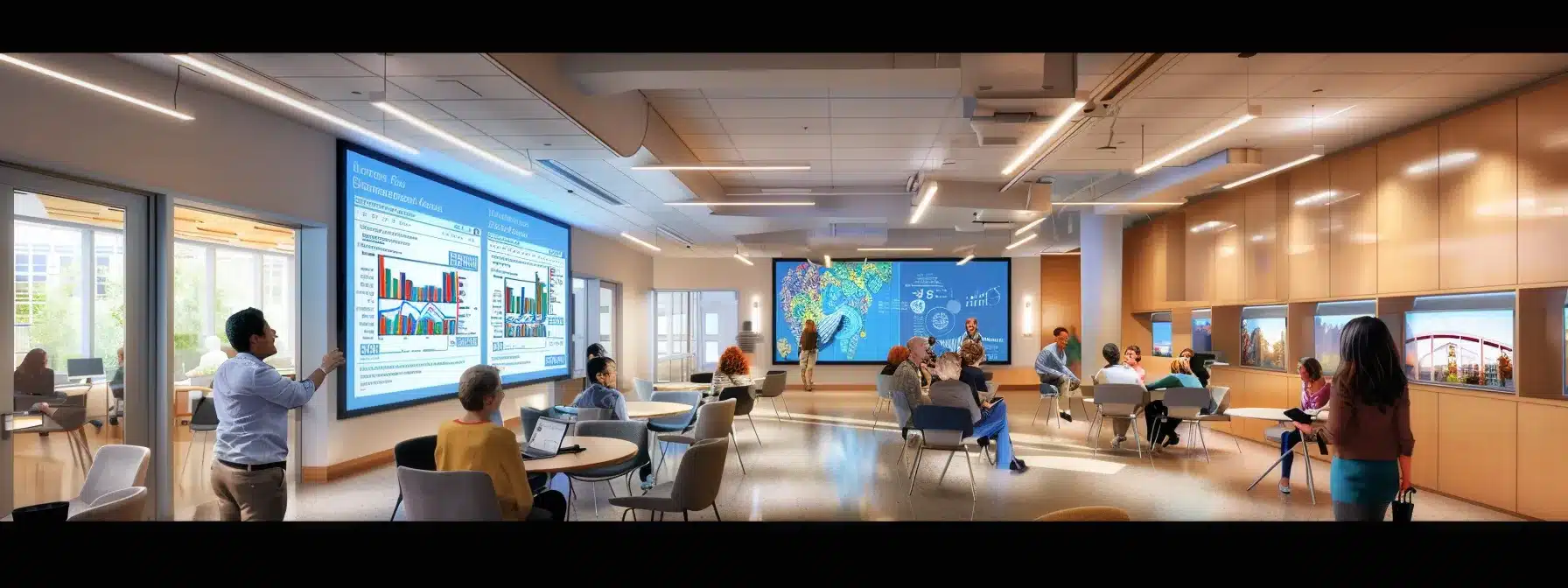
This section provides practical insights on average costs in your area, comparing dementia care to retirement and other senior care types. It examines payment options and financial assistance while considering factors like power of attorney requirements in various zip code locations, including Bergen. The details offer clear guidance to make informed decisions with focused attention.
Overview of Average Costs in Your Area
Average costs vary by region, reflecting differences in the general atmosphere, services offered, and professional oversight from a dedicated physician and caregiver team. In areas like New Hampshire, pricing structures often encompass personalized care plans, ensuring each resident receives a level of attention tailored to them, whether it is a place for mom or another loved one.
Practical examples from residents show that robust caregiver programs help justify investment, providing an environment that emphasizes quality living. Professionals report that dementia care facilities in New Hampshire manage expenses transparently, ensuring the offered atmosphere supports both comfort and security for every resident.
Comparing Costs With Other Types of Senior Care
When comparing costs of dementia care to other senior care options, professionals note that expenses can vary greatly depending on factors such as personalized hygiene services and specialized equipment like wheelchairs. One asset of Memory Lane Assisted Living lies in its transparency, which supports families with clear financial comparisons and even offers guidance through direct email address contacts for further inquiries:
Further analysis indicates that care for veterans or individuals needing focused dementia support may incur higher fees when customized services are involved. Comparing dementia care costs with standard senior care offerings, families gain practical insights that assist overall planning and clarify where higher charges become a valuable asset in quality care, enabling an informed decision based on comprehensive cost comparisons and professional recommendations.
Exploring Payment Options and Financial Assistance
Memory Lane Assisted Living provides transparent information on payment methods and support programs tailored to dementia care. This guidance from a nurse practitioner and financial advisor in Missouri offers practical approaches to managing funds, ensuring that families can continue to support socialization programs while caring for brain health in a secure courtyard setting:
- Fixed monthly payment plans
- Sliding scale options based on income
- Access to community funding resources
Professional advisors at Memory Lane Assisted Living assist families in navigating financial assistance for specialized dementia care. They offer expertise on payment options that cover the costs of personalized care, including diverse services in Missouri, and emphasize the value of safe environments where socialization is encouraged and brain-stimulating activities are available within a quiet courtyard setting.
The fees are only one part of the story. Next, each facility shows its own care through the services and comforts it provides.
Services and Amenities Offered in Dementia Care Facilities
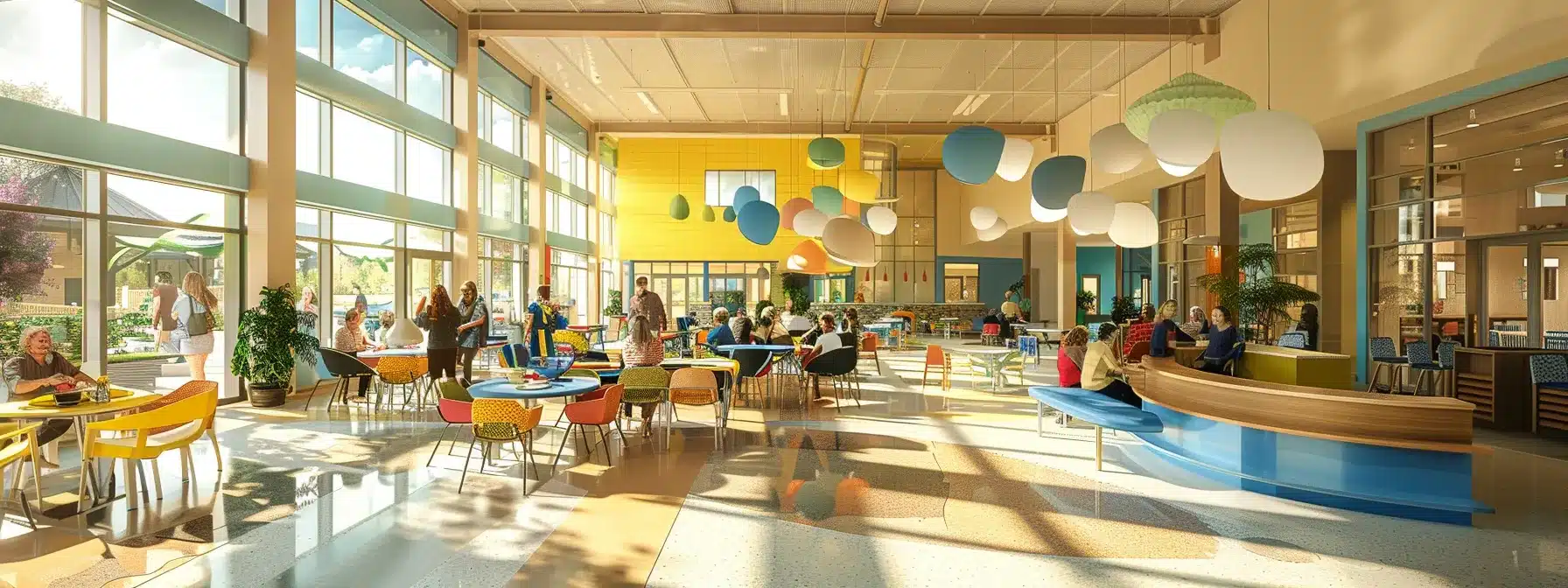
This section outlines care services available, recreational and therapeutic activities, and dining options for a patient. It offers practical insights into geriatrics care and unique behavior support, discusses potential fees, and touches on medicare part d benefits. Detailed topics include types of care services, engaging therapeutic programs, and nutritional support options.
Types of Care Services Available
Memory care facilities offer specialized services tailored to support the everyday needs of residents, from assistance with daily activities to structured therapy programs designed to enhance comfort and security. They implement strict regulation practices that ensure every activity, including bathroom assistance, meets high safety standards, offering peace of mind to families seeking reliable dementia care.
Experts note that care services at facilities often extend to help with financial concerns, such as guidance on reverse mortgage options, and incorporate innovative settings reminiscent of urban environments like hudson yards to promote engaging social experiences. The integrated approach helps provide a comprehensive plan that addresses both personal and financial aspects of living with dementia.
Recreational and Therapeutic Activities Provided
Memory care units prioritize both recreational and therapeutic activities to support cognitive function and overall wellness. At Memory Lane Assisted Living, these engaging programs combine hands-on activities with structured exercises designed to assist residents in managing their disease symptoms, while maintaining a strict license of safety and quality in service delivery. The facility also emphasizes nutrition and routine housekeeping services to create a balanced and supportive environment.
The facility implements tailored sessions that involve creative therapeutics and group interactions, which contribute to enhanced memory function and emotional stability. Professionals observe that residents benefit from structured programs that complement daily routines, with a focus on maintaining a balanced diet and regular housekeeping standards that foster a sense of normalcy and stability for those experiencing the challenges of dementia.
Dining and Nutritional Support Options
In these facilities, dining options are designed to promote health and wellbeing, offering nutritious meals that help counteract the challenges of poverty among residents. Professionals ensure that diets complement physical therapy sessions, providing balanced nutrition in a village-style setting that fosters community engagement and comfort.
Facilities in areas such as Connecticut and the New York metropolitan area prioritize meal planning that supports both clinical and everyday needs. Expert teams combine structured dining plans with practical support, making sure residents receive food that aids recovery and maintains their overall strength and energy.
Memory Lane Assisted Living offers care that meets every need with warmth and respect. Now, the focus shifts to the rights and rules that help protect every resident and their family.
Understanding Your Rights and Regulations
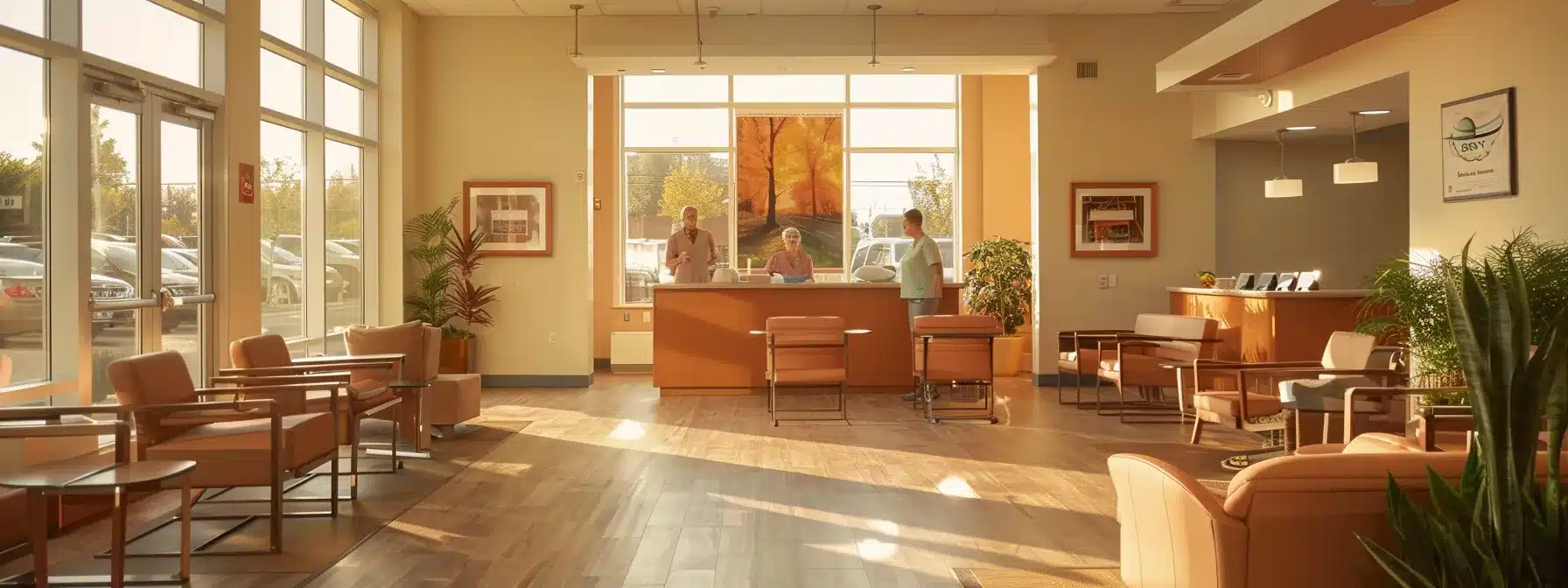
The guide explains state regulations for quality dementia care, ensuring safety and compliance. It covers residents’ rights, including consent issues, and outlines the process to file complaints in health care settings like queens and home care. These topics offer practical insights for families seeking dependable and secure dementia care.
Overview of State Regulations for Dementia Care
State regulations for dementia care ensure that facilities maintain high standards in elderly care and managed care protocols while providing accessibility to all clients. In North Dakota, these rules guide how care centers address dementia support and ensure that residents receive individualized treatment within a secure and well-regulated environment.
Professional oversight and clear regulatory frameworks help facilities meet compliance requirements in managed care and elderly care services for dementia patients. This structured approach in North Dakota provides families with practical insights and reassurance regarding the safety and quality of the care being offered.
Rights of Residents in Dementia Care Facilities
Residents in dementia care facilities have clearly defined rights that focus on ensuring their overall quality of life, including compliance with fire safety measures and care standards as overseen by agencies such as the New York State Department of Health. Regulatory frameworks in locations like Vermont provide guidance on various aspects of care, and families can seek legal aid to address any issues related to meeting these benchmarks.
Many facilities prioritize resident rights by implementing strict safety protocols and transparent care plans. Third-party oversight ensures that residents enjoy personalized services that respect their dignity, and support from legal aid professionals helps navigate any challenges—assisting families in securing an environment that maintains high quality of life standards.
How to File Complaints or Grievances
Professionals suggest that family members carefully document a resident’s medical history and include details about music therapy sessions and other memory-enhancing activities when filing a complaint or grievance. They recommend that families maintain records of incidents and price changes, which can be useful when addressing issues with the facility, especially in settings like New York City.
Regulatory authorities encourage individuals to submit a formal statement that outlines their concerns and includes relevant documentation, such as medical history and specific instances related to memory care inadequacies. This approach allows families to ensure their feedback is taken seriously and helps facilities address issues around price adjustments and service quality effectively.
After learning the rules, the path forward becomes clear. The next section explains how to move into a setting where focused dementia care and personal attention await.
Making the Transition to a Dementia Care Facility

Preparing your loved one for the move involves practical steps for a smooth transition, while involving family in the decision-making process ensures emotional support. Adjusting to life in a dementia care facility may include considerations like a balanced diet and nearby food bank access, helping residents settle into their new environment with clarity and purpose.
Preparing Your Loved One for the Move
Memory Lane Assisted Living offers practical guidance for preparing a loved one for the transition to a dementia care facility. The team stresses the importance of clear communication about the change, ensuring that the resident understands what to expect while maintaining familiar routines as part of the move.
Families are encouraged to actively engage in planning the new environment to provide comfort and stability during the transition. Practical advice from experienced professionals ensures that the new setting meets the resident’s needs and supports their well-being while establishing a smooth adjustment process.
Involving Family in the Decision-Making Process
Family participation is crucial when transitioning a loved one to a dementia care facility, as it ensures that everyone remains informed and comfortable with the planned changes. Involving relatives in discussions around care options promotes clear understanding of the facility’s specialized services and personalized approach.
The process of incorporating family insights has proven effective in clarifying expectations and streamlining decision-making for dementia care facilities:
- Open communication with healthcare professionals
- Reviewing the facility’s care plans and services
- Discussing financial and logistical arrangements
This methodical involvement supports a smoother adjustment period and reinforces confidence in the chosen facility.
Adjusting to Life in a Dementia Care Facility
Residents find routine adjustments manageable with clear communication from the care team, which assists in establishing familiar patterns in a new environment while addressing daily challenges. Memory Lane Assisted Living shows that a structured setting and dedicated support help ease the transition and reduce anxiety.
Professionals observe that regular updates on care plans and involvement in community activities improve overall well-being and encourage a sense of belonging during the initial stages of a facility move:
The journey to a caring, safe place continues as questions arise. Answers to those concerns await in the next section.
Frequently Asked Questions About Dementia Care Facilities

Families seeking quality care will find clear guidance on beginning the search for nearby dementia care facilities, identifying essential features that ensure a supportive environment, and understanding the costs associated with specialized care. This section offers direct answers that help inform practical decisions for loved ones’ well-being.
How Do I Begin the Search for Dementia Care Facilities Near Me?
The initial step in locating dementia care facilities involves using online directories and local listings to identify providers that specialize in memory care. Memory Lane Assisted Living offers valuable insight for families by highlighting facilities that deliver a person-centered approach in a small residential setting, ensuring every local option is thoroughly considered.
Professional guidance from local health advisors aids in refining the search for supportive care environments. Relying on verified recommendations helps families quickly pinpoint facilities that meet specific needs, making the process of finding quality dementia care as straightforward as possible.
What Are the Key Features to Look for in a Dementia Care Facility?
Key features in a dementia care facility include a person-focused approach, trained caregivers, and a familiar environment that supports both safety and independence. Professionals ensure that facilities have clear care plans, transparent communication methods, and specialized approaches that address the unique needs of individuals with memory challenges.
Other essential elements include regular staff training, a structured routine, and environments designed to promote comfort and engagement. Experts at Memory Lane Assisted Living stress the value of thorough oversight, ensuring that each care facility meets high standards while maintaining a supportive and secure residential setting.
How Can I Understand the Costs Associated With Dementia Care?
Memory Lane Assisted Living advises that families review financial details with care providers to understand cost structures in dementia care facilities. They recommend requesting transparent information on monthly rates, specific service fees, and any potential variations in charges to ensure that the pricing fits within the family’s budget.
Experts at Memory Lane Assisted Living stress the importance of comparing these figures with personalized care plans that address unique requirements. They suggest that clear guidance from care professionals can help families make informed decisions regarding cost, service quality, and long-term financial commitments.
Families have clear questions and clear needs now. The next section shows them how to find local support that truly cares.
Resources for Finding Dementia Care Facilities

This section offers practical guidance on finding dementia care facilities. It covers the use of online directories and databases for detailed facility listings. It also reviews support groups and community organizations that share valuable experiences, and highlights government and non-profit resources for clear, reliable information. Each resource area provides straightforward insights to help families make informed decisions about care options.
Online Directories and Databases
Online directories and databases offer a simple method to locate specialized dementia care facilities that meet individual needs. These resources provide detailed information on Memory Lane Assisted Living and other person-centered options for dementia support in the Ypsilanti and Ann Arbor area.
Utilizing these online tools, families can quickly compare facility features, care plans, and local support services. This approach delivers clear and practical insights, making it easier to identify reliable options that balance comfort with professional care.
Support Groups and Community Organizations
Support groups and community organizations serve as reliable resources for families seeking dementia care facilities. They provide access to practical insights, expert advice, and firsthand experiences that can ease the selection process in finding a place that meets individual needs.
Community organizations and support groups offer clear guidance and detailed support during the search for quality dementia care, addressing common concerns and simplifying difficult decisions:
- Regular meetings featuring experienced caregivers
- Informative sessions on facility options and care plans
- Opportunities to connect with families who have faced similar challenges
Government and Non-Profit Resources
Government and non-profit resources offer reliable information on dementia care facilities by providing updated directories and verified contacts for specialized care providers in the Ypsilanti and Ann Arbor area. These organizations help families gain access to trusted listings and practical advice based on established care regulations, ensuring an informed decision-making process for loved ones in need.
These agencies deliver clear guidance on care standards and financial support avenues, which simplifies research for families seeking personalized dementia care. Their expertise in the field contributes to a transparent overview of available services, offering a practical solution for families navigating care options in a community-focused setting.
Family voices steady the narrative with a calm clarity that invites further reflection. Honest stories from loved ones provide real insight into the care and comfort offered here.
Testimonials From Families of Residents in Dementia Care Facilities
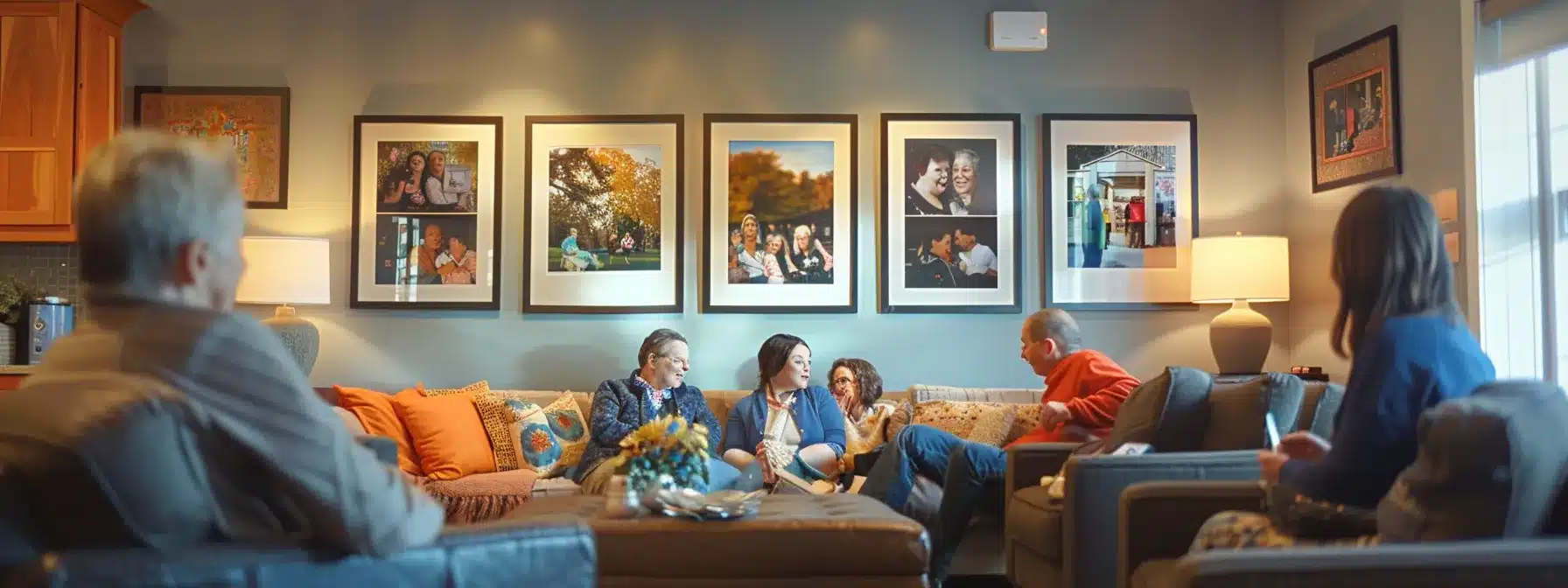
Personal stories provide insights on successful transitions, highlighting lessons learned from caregiving experiences and practical advice for families seeking care solutions. These testimonials underscore the value of a person-centered approach and offer clear guidance for finding reliable dementia care facilities near you.
Personal Stories of Successful Transitions
Families share inspiring accounts of how their loved ones smoothly adjusted to care facilities, highlighting the importance of a person-centered approach in easing the transition process. Their experiences reveal that clear communication and active participation in care planning led to a secure and gratifying environment, making each move a positive transformation.
These firsthand stories illustrate how proactive efforts from professionals and family support create a comforting atmosphere for new residents. The shared insights help other families understand that engaging in the care process, from selecting a facility to establishing routine activities, can significantly ease the challenges of moving to a dementia care setting.
Lessons Learned From Caregiving Experiences
Families have learned that close communication with care providers improves transitions for residents moving into dementia care. Their experiences motivate greater transparency in care plans and strengthen trust in facility operations, leading to better outcomes for those with memory challenges.
The insights gathered from these caregiving experiences show that active family involvement enhances daily care routines. Practical examples demonstrate that selecting a facility with a clear, personalized approach helps ease the adjustment process and ensures a supportive environment.
Advice for Families Seeking Care Solutions
Families seeking care solutions are advised to meet with professionals at Memory Lane Assisted Living to discuss options tailored to unique needs. Expert recommendations emphasize prior visits to facilities and detailed review of personalized service plans to ensure a secure environment for those with dementia.
Families can gain valuable insights by communicating openly with trusted healthcare providers and peers who have navigated similar transitions. Practical discussions with professionals help in understanding clear financial arrangements and care procedures, leading to informed decisions that meet individual expectations.
Family stories leave a mark with memories that speak clearly to the care provided. The next section offers a clear guide to choosing a facility that feels like home.
Conclusion and Next Steps for Finding the Right Facility

Memory Lane Assisted Living provides a clear pathway for locating dementia care facilities that meet individual needs. Families gain practical insights from the guide that simplify the process of comparing local options.
Professionals advise contacting care providers directly to request detailed information about services and pricing. Direct communication helps clarify any queries regarding personalized care plans.
Families are encouraged to schedule visits to facilities that offer tailored dementia care in a residential setting. In-person meetings support the evaluation of staff expertise and the overall environment.
Memory Lane Assisted Living guides families through making informed decisions that best support their loved ones. The approach ensures that personalized care is accessible and directly addresses each resident’s needs.
Frequently Asked Questions
What distinguishes dementia care facilities for memory care?
Memory care within dementia facilities offers tailored support in small residential settings, ensuring personalized attention and specialized care for those experiencing cognitive decline while incorporating a home-like atmosphere and compassionate practices throughout.
How do I search for local dementia care facilities?
Visit Memory Lane Assisted Living’s website for local listings of dementia care services in Ypsilanti and Ann Arbor. They offer detailed information for families searching for compassionate memory care in a supportive, residential setting.
What services do dementia care facilities typically offer?
Dementia care facilities provide personalized care, secure supervision, daily living assistance, memory support, and engaging activities in a home-like setting, emphasizing a person-centered approach and specialized treatments for individuals facing cognitive challenges.
What costs are linked to dementia care options?
Memory Lane Assisted Living offers personalized dementia care integrated with adult foster care. Costs vary with service level, specialized attention, and the home-like setting designed to meet memory care needs.
What steps ease the transition to a dementia care facility?
Transitioning to a dementia care facility, families can benefit from a person-centered approach, allowing gradual orientation, tailored care plans, and a supportive environment. Memory Lane Assisted Living offers specialized dementia care in a comforting residential setting.
Conclusion
Memory Lane Assisted Living emphasizes that a well-researched search for local dementia care facilities directly impacts the quality of life for loved ones with memory challenges. Families receive clear guidance to assess facility quality, including staff training, personalized care plans, and effective safety measures. The detailed review of costs, payment options, and family participation ensures informed decision-making. This comprehensive guide empowers caregivers to secure a supportive and person-centered environment for their family members.
